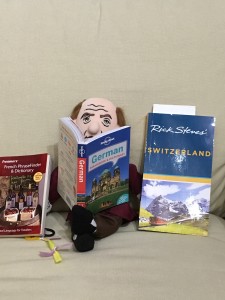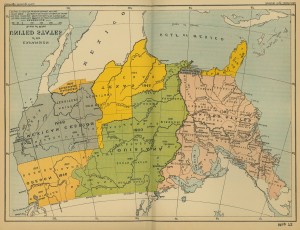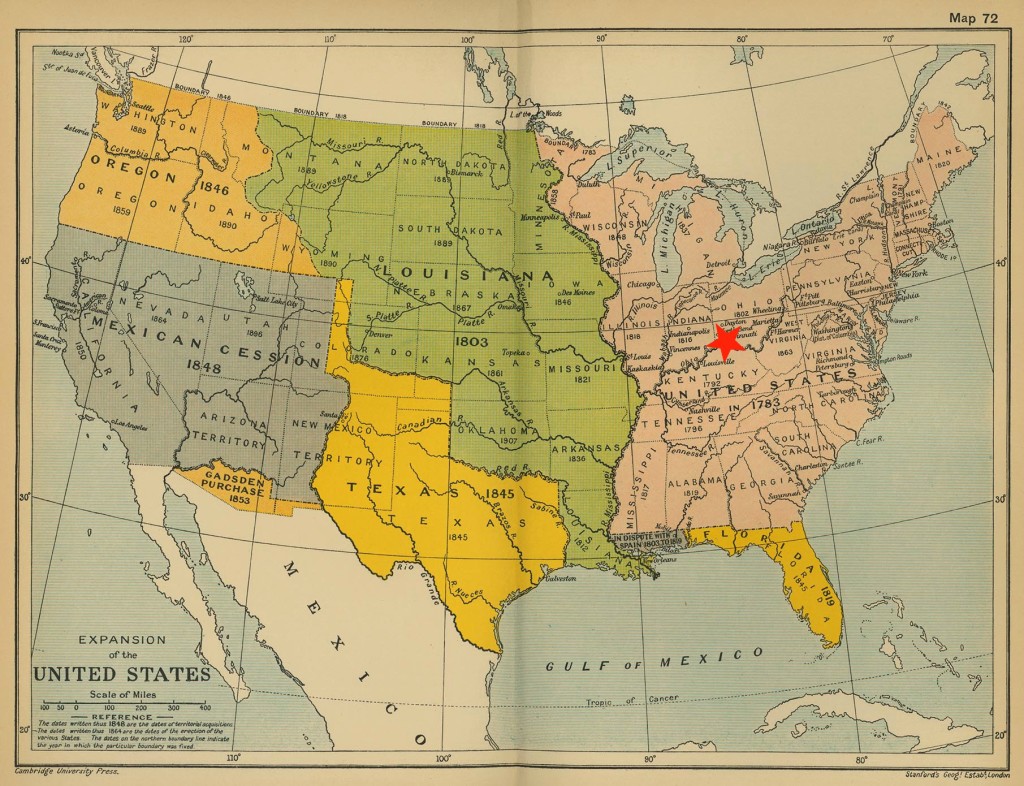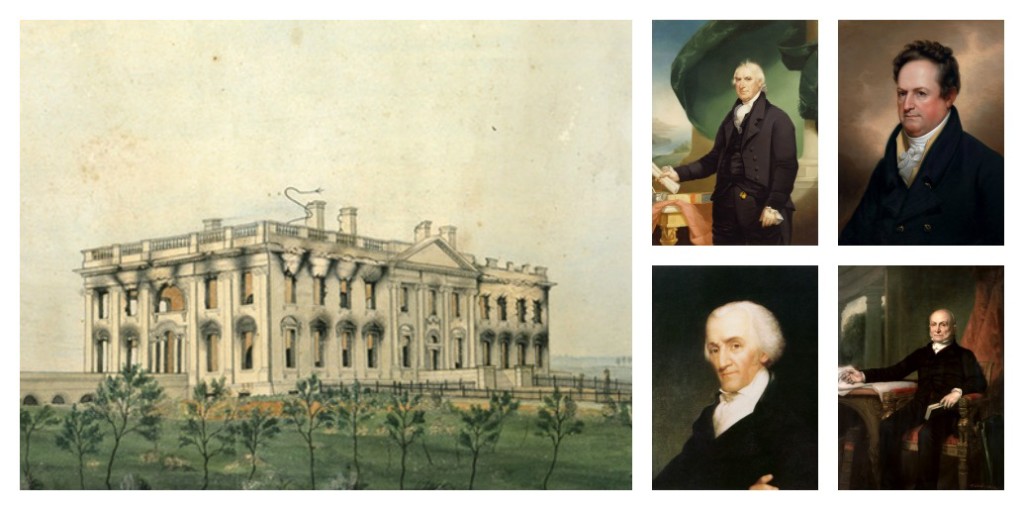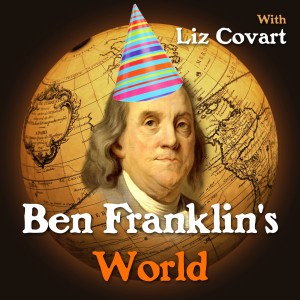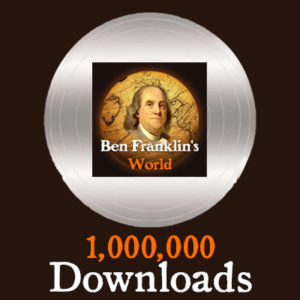 Ben Franklin's World hit a big milestone this past weekend. On Saturday, September 17, 2016, it reached and surpassed 1 million downloads.
Or as I like to joke, Ben Franklin's World went platinum.
Ben Franklin's World hit a big milestone this past weekend. On Saturday, September 17, 2016, it reached and surpassed 1 million downloads.
Or as I like to joke, Ben Franklin's World went platinum.
In the world of podcasting, reaching and surpassing 1 million downloads is a remarkable achievement. What make's Ben Franklin's World achievement of this goal even more remarkable is that the show reached this milestone as an independently produced podcast before its 2-year anniversary (Oct 7). Also, it achieved these downloads without inflationary tactics such as "tweet bombing" and without paid advertising.
There are two main reasons the podcast has been as successful as it has over the last (almost) two years: First, it offers high-quality content that listeners enjoy enough to recommend to others. Second, I've had a lot of help from friends, colleagues, and listeners.
The People Behind-the-Scenes
Darrell Darnell of Pro Podcast Solutions has served as the audio engineer and assistant editor for the show for the last year. He works hard to ensure that each episode sounds great and as good as it possibly can. Given my sensitive ears this not always an easy feat to achieve.
The Omohundro Institute of Early American History and Culture has played a sizable role in the evolution of the show. Last year, they helped me troubleshoot a lot of quick-growth "hiccups" that developed in the back end of the podcast. This year, they've helped shape the content side. They've done this with our "Doing History: How Historians Work" series and in providing silent, gentle encouragement to do better. (They asked me to keep doing what I was doing, but there's something about producing a podcast for the organization that publishes the leading journal in your field, and many of its leading books, to make you ask "what can I do to produce better episodes?")
Many friends and colleagues have listened to me talk ad nauseam about both history and podcasting. However, three friends and colleagues have gone above and beyond serving as sounding boards for this project: Sara Georgini, Joseph Adelman, and Karin Wulf. I can safely say all three now know more about podcasting and its technical workings than they ever thought they wanted to know.
My partner Tim Wilde also knows more about podcasting, digital media, and how they can complement history than he ever wanted to know. Tim has supported this project both literally and figuratively since I came up with idea to start a podcast. Not only did he make the project financially feasible for more than a year, he has also spent many nights and weekends being silent while I record, writing me code that integrates apps with the BFWorld website, and fixing technical issues that arise when WordPress, RSS feeds, and other code breaks. This is to say nothing of how he has yet to comment on the fact that Ben Franklin's World often turns him into a "podcast widower."
Listeners have been central in helping Ben Franklin's World grow from 288 downloads in October 2014 to a monthly average of over 68,000 downloads today. BFWorld listeners serve as the enthusiastic advertising department for the podcast. They recommend the show to their friends, family, and acquaintances because they love history, the guest historians and the topics they discuss in episodes, and that I work hard to provide them with high-quality content.
Plus, listeners have helped in other ways too. Some listeners go the extra mile to help support the show's production costs with financial donations. Many more offer support by sending e-mails, tweets, and Facebook posts of encouragement.
Podcasting is way more work than I ever thought it would be and the production schedule of a weekly show is downright grueling. There are weeks when I think about airing old content, skipping an episode, or reducing the production schedule to every other week because I'm exhausted and want to work on my book projects. There are also weeks where my perfectionist tendencies kick in and I fret over the quality of my work. Without fail, whenever I fall into a tired, mental rut, my inbox and social media streams start bulging with listener feedback telling me how much they love the show and feel enriched by it. And without fail, these words of encouragement spur me on.
I am sincerely grateful to all of these friends for their assistance.
Episode 100 & Beyond
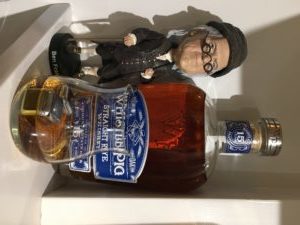 When episode 100 airs tomorrow (Sept 20), I will enter a different level in the podcasting space; the level that says I'm statistically likely to continue podcasting for another 1-3 years for a total of 3-5 years. It will be interesting to see if this holds true or if Ben Franklin's World and I become a statistical outlier. Time will tell.
When episode 100 airs tomorrow (Sept 20), I will enter a different level in the podcasting space; the level that says I'm statistically likely to continue podcasting for another 1-3 years for a total of 3-5 years. It will be interesting to see if this holds true or if Ben Franklin's World and I become a statistical outlier. Time will tell.
Uncharacteristically, I'm mostly focused on the moment rather than on the future and all the work that needs to be done. Tim and I marked 1 million downloads by splurging on an expensive bottle of whiskey that we will enjoy for months to come. Next month, we will celebrate the show's 2-year anniversary with a long weekend away from Ben Franklin's World.

 Do you know Flat Stanley?
Do you know Flat Stanley?
 I am not sure how it happened, but January may have been the only month when I don’t travel in 2016.
I am not sure how it happened, but January may have been the only month when I don’t travel in 2016.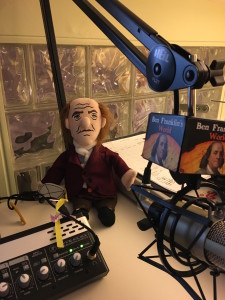 I have friends and family who find my enthusiasm for early American history a bit eccentric. They send me bobbleheads and tell me about quirky items like the
I have friends and family who find my enthusiasm for early American history a bit eccentric. They send me bobbleheads and tell me about quirky items like the 